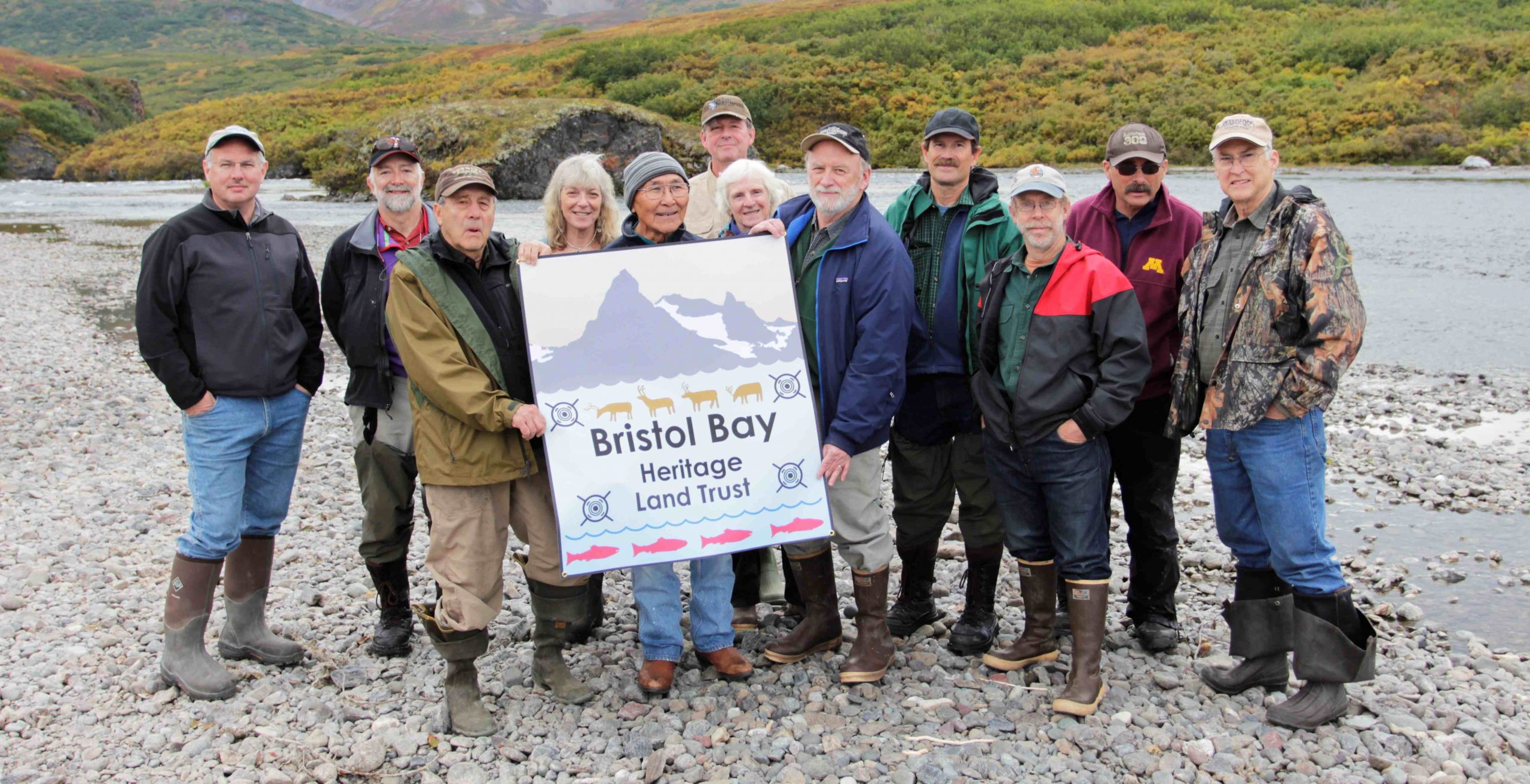Advocacy
The Bristol Bay Heritage Land Trust advocates for laws and regulations that protect the fish, wildlife and other renewable resources of Bristol Bay.

Congress Passes Federal Tax Incentive for Donations of Conservation Easements by Alaska Native Corporations
In 2005, the Bristol Bay Heritage Land Trust first proposed the idea of providing Alaska Native Corporations a federal tax incentive for conservation easement donations similar to what is enjoyed by farmers and ranchers. Finally, with the help of Tyonek Native Corporation, the Land Trust Alliance, and Alaska’s Congressional delegation, the incentive became law in December 2015. Alaska Native corporations can now recapture through a federal tax charitable deduction much of the dollar value of any conservation easement placed on corporate lands.
Under the law an Alaska Native corporation may be able to claim a deduction for the full value of a donated conservation easement up to 100% of the corporation’s annual taxable income. If the corporation did not make enough income in one tax year to offset the value of the conservation easement, it may be able to carry forward the amount of the deduction in excess of its taxable income over the next 15 years.
IRS Opinion Letter on conservation easement donations by Alaska Native Corporations
Nushagak River Watershed Traditional Use Area Conservation Plan
In 2005 the Nushagak-Mulchanta Watershed Council with funding through the Bristol Bay Native Association and The Nature Conservancy in Alaska engaged the Land Trust to gather traditional use data from villages in the region and develop a conservation plan to address threats to the habitat and species upon which the people of the watershed traditionally depend for subsistence. The result was the Nushagak River Watershed Traditional Use Area Conservation Plan. The Land Trust uses the plan as the primary guide for its conservation activities in the watershed.
Pebble Mine
The Board of Directors passed a resolution in 2006 opposing construction of the proposed Pebble Mine in the headwaters of the Nushagak River watershed. The Land Trust then began a multi-year program of scientific research designed to secure protections for salmon and water quality under existing law in those watersheds most likely to be affected by a mine. (see Water Protection).
Citizens’ Alternative Bristol Bay Area Plan
In 2009, the tribal councils of Nondalton, Koliganek, New Stuyahok, Ekwok, Curyung (Dillingham), and Levelock (Six Tribes), and the Alaska Independent Fishermen’s Marketing Association, and Trout Unlimited, Inc. sued the Alaska Department of Natural Resources (DNR) challenging the land classifications adopted in the 2005 revisions to the Bristol Bay Area Plan. The revisions reclassified most of the twelve million acres of state land in Bristol Bay effectively removing protections for habitat and recreation. The litigation settled in 2012 when DNR agreed to revisit the 2005 Area Plan.
In December 2012, DNR presented it revisions and asked for public comment. Although the proposed amendments touched upon some of the concerns raised in the litigation, they did not go far enough to protect fish and wildlife habitat or subsistence, commercial and recreational uses of fish and game.
Rather than be limited to comments to DNR, the Six Tribes engaged the Land Trust to prepare an alternative plan that more accurately reflected the vision of the majority of people living in Bristol Bay. The result was The Citizens’ Alternative Bristol Bay Area Plan. The plan offered to DNR, to the people of the region, and to the people of Alaska as a more reasonable, scientifically supportable and common sense approach to the management of state lands, waters and resources in Bristol Bay, particularly within the Nushagak and Kvichak watersheds. The effort resulted in DNR’s 2013 amendments to the Bristol Bay Area Plan which restored land classifications to protect habitat and recreation to most of the state land in Bristol Bay.

 About
About